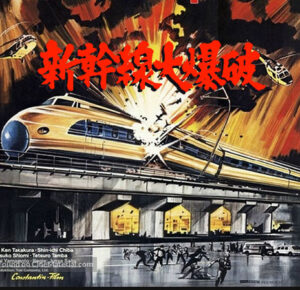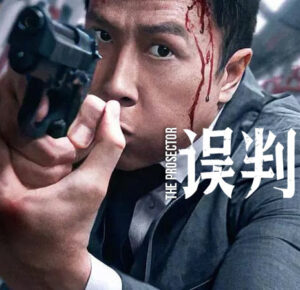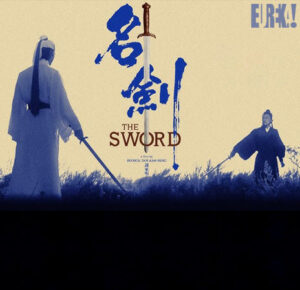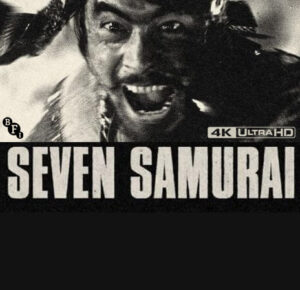
“My Rebellious Son” Chinese Theatrical Poster
Director: Sun Chung
Cast: Alexander Fu Sheng, Ku Feng, Cecilia Wong Hang Sau, Michael Chan Wai Man, John Ladalski, Johnny Wang Lung Wei, Ngaai Fei, Tang Ching, Walter Tso Tat Wah, Tin Ching, Yuen Bun, Yuen Wah
Running Time: 93 min.
By Matthew Le-feuvre
It’s difficult to embrace that it has been well over three decades since box office idol Alexander Fu Sheng’s tragic death. In just ten years, this affable and complex star made over thirty five films ranking from a succession of ‘Shaolin’ orientated retrospectives to light hearted; occasionally inane kung fu comedies where his natural physical versatility – as well as his mischievous persona – were put to good use in a variety of situations; some implausible, but usually with vivacious consequences. His ‘Shaolin’ workload, though, tended to be emotionally streamlined favoring exact kung fu depictions as in, by example, New Shaolin Boxer (1976), a semi referential premise that heralds the intricate style of Choy Li Fatt, itself a center piece to the storyline about a rickshaw attendant who opposes a malicious street gang led by dependable screen villain, Wang Lung Wei.
Although few would disagree, in some respects Fu Sheng was an instrumental precursor to Jackie Chan’s eventual screen brand of integrating canto-vernacular expressionism with that of slapstick athleticism. Indeed, one can detect these juxtapositions even though Chan maintains his direct inspirational links were silent icons: Charley Chaplin, Buster Keaton and Harold Lloyd; yet from a historic point of view, Fu Sheng was really the first action-comedian to fractionally instigate this genre from which he never received credit for: in fact, Fu Sheng was Yuen Woo Ping’s premier choice to play the abused orphan ‘Ting Fu’ for Snake in the Eagle’s Shadow (1977). However, contractual legalities prevented him from starring in may what have been arguably superior entries to Sheng’s already established filmography.
Educated in Hawaii, where his preferred interests focused on learning karate and Judo, Fu Sheng was originally born in Hong Kong 1954 to an affluent family who expected him to follow tradition, and become a major entrepreneur. Allegedly, Sheng had something by way of a troubled youth. Torn between family obligations and his own passions for movies and music (he later married singer/actress, Jenny Tseng), at sixteen he joined the Shaw Brothers’ training academy where, much to his parents’ disapproval, he excelled in drama expositions and the rudiments of kung fu. With an inherent flare for performance, handsome looks and (a) charisma far above his contemporaries, everyone soon became aware of his qualifications – most notably esteemed studio director, Chang Cheh, who at the time was grooming newcomer, Chen Kwan Tai, for his lead debut in The Boxer from Shantung (1972).
Typically, Sheng was offered the opportunity of an uncredited stuntman appearance at the picture’s finale, although one has too observe extremely carefully. From there, minor roles were afforded too him such as Cheh’s underrated experimental pieces: The Generation Gap (1973), Police Force (1973) and Friends (1973) before winning significant acclaim (for) portraying folkhero ‘Fan Shih Yue’ (aka Fong Sai Yuk) in a trilogy of films that highlight brotherhood, patriotism and sacrifice. Fan Shih Yue, of course, was a legendary ‘Han’ freedom fighter, who invariably fought alongwith his mentor and comrade, Hung Xi Kwan. History purports that from a young age Fan Shih Yue’s mother soaked his entire body in a giant ceramic pot filled with herbal wine. After many months of discomfort, it was documented his skin became impervious to impalement, earning him the distinctive monicker of “Iron Vest Fan.” His weak spot, however, was his anus.
Fu Sheng indeed revelled in the role: his cocksure attitude mirrored a believability that would make other actors’ appear staid and artificial. Yet, Sheng approached all of his roles with an inbred sense of eccentricity, whether straight-laced, comical or completely absent of intellect as in Five Shaolin Masters (1974); whereby his character’s obvious lack of common sense is overshadowed by an ingrained fighting proficiency. After that he never looked back.
As his fandom escalated in leaps and bounds, Sheng worried deeply about becoming typecast in an industry that was both taxing and dangerous; personal liability was not an optional inclusion to any Shaw Brothers contract. Nevertheless, besides joint-starring with Chi Kuan Chun for celebrated classics: Shaolin Martial Arts (1974), Marco Polo (1975), and his career defining picture Disciples from Shaolin (1976); Sheng often tried too diversify his performances by collaborating with other studio directors: i.e. Chu Yuan, Sun Chung and Liu Chia Liang.
According to sources, Sheng’s working relationship with Liang became temporarily strained following an artistic episode involving the first time director’s choice to replace the rising star with the late Wong Yue for the lead in The Spiritual Boxer (1976); a part Sheng originally coveted. However, protracted tensions between Cheh and Liang ‘then’ over creative differences during production of The Boxer Rebellion (1975) meant Cheh retained seniority over casting, which is why Wong Yue was immediately decided upon, while Sheng’s presence (indirectly) may have been perceived as an internal catalyst for further rivalry.
Question is: would The Spiritual Boxer have benefited moreso – commercially, if Sheng had taken up the role of the charlatan magician? Either way, it didn’t matter. As Wong Yue progressed through an echelon of pedestrian swordplay affairs to cult favourites; generally in tandem with Gordon Liu, Sheng’s star attraction had dramatically increased. Amazingly, he was contracted to four,even five films per year; few were even shot simultaneously like the epic Shaolin Temple (1976) and the contemporary tragic-drama The Chinatown Kid (1977). Naturally release dates vary.
It was these productions where nuances of pathos were slowly creeping into Sheng’s repertoire, even though from the outset his performances consisted of a buoyant, cheeky exterior. Seriousness of character did not always manifest until set against the backdrop of a grim inevitability. Shaolin Temple, for instance was a film riddled with expectant scenes that fluctuated between habitual tension and ritualized serenity, using Sheng as a comic foil to bridge the two contradictions. It was almost bathetic in design right up to its violent and lengthy conclusion.
The Chinatown Kid on the other hand contained analogies to Cheh’s previous masterworks: The Boxer from Shantung and Disciples from Shaolin. The universal message of these (three) movies was the timeless adage of “Power” and its ability to corrupt even the most well intentioned individual. In Cheh’s case, the catalyst of each characters’ downfall was their material fixation on a particular object, as well as their instinctive desires for wealth and reputation. It was this sense of poetic obsession that caught the eye of Hollywood, partly because of Sheng’s blistering performance as the not-too-bright “Kid” who only really cared about owning a flash suit and a digital wristwatch.
Indeed, negotiations were eminent between the Shaws and Warner Brothers about a potential co-production which would best serve Sheng’s acting/martial arts fortitude. The opportunity was there, but a serious accident (during filming) that temporarily crippled him, suspended further investment.
Contending with a possible disability, Sheng recuperated slowly, and within six months he’d miraculously regained enough flexibility and strength to cameo in Liang’s Legendary Weapons of Kung Fu before excepting a non-physical role in Lau Kar Wing’s screwball horror-comedy The Fake Ghost Catchers (1982). He reunited with Liang twice for Cat vs. Rat (1982) and The Eight Diagram Pole Fighter (1984). Sadly, the latter had too be re-written and finalized without Sheng’s participation due an unfortunate and uncanny road accident which claimed the life of the twenty-nine year old.
Today, some Hong Kong folk still believe Sheng’s death, like Bruce Lee’s, is attributed to bad Feng Shui. Parallels are indeed evident: in addition to a ten year time differential between each stars’ passing, neither completed their ‘current’ projects, and despite cryptic warnings, Sheng bought Lee’s former mansion in Kowloon. All these similarities – whether co-incidental or otherwise – echo an eerie familiarity seldom seen outside the realms of Tinseltown, let alone Asia.
In recent years, Fu Sheng’s extensive filmography has been gradually re-released (on DVD) through reputable distributors such as Celestial, Dragon Dynasty, Well Go USA and Tokyo Shock. Although annoyingly limited in the western hemisphere for those who do not possess the luxury of a multi-region DVD player, these titles do not represent, nor embody Sheng’s comprehensive back catalog: important, yes! But, by far, not his most memorable in terms of storyline, characterization or action choreography – bar exception Disciples from Shaolin (1975), Heroes Two (1974) and Avenging Eagle (1978). For some fans it has always been about The Brave Archer (1977) quadrilogy that best defines Fu Sheng’s allure; others’ passionately argue The Treasure Hunters (1981) or Deadly Breaking Sword (1979), yet the majority feel My Rebellious Son encapsulates the true persona of perhaps one of the most underrated celebrities of the Shaw pantheon.
This was Fu Sheng’s third and final collaboration with (the) legendary, elusive film-maker, Sun Chung – known for his Kubrick-like devotion for precision continuity and an unfailing approach for numerous (re)takes. Sun Chung was also lauded for his outrageous quick-editing style and uncompromising camera angles – subsequently adopted by John Woo (Last Hurrah for Chivalry), Tsui Hark (Zu: Warriors From Magic Mountain) and a torrent of other prospective celluloid aluminaries. The realms of comedy, no less, was an unusual divergence for Chung. Normally, he commonly explored the darker aspects of the human condition: corruption, violent impulse and motivational sadism were just three areas back lit and imbued in Chung’s trademark moody, sometimes romanticized gothicism.
In reflection, however, My Rebellious Son was, surface wise, a concept possibly developed in the wake of Jackie Chan’s Drunken Master (1978) and Billy Chong’s The Crystal Fist (1979), but on closer examination, it actually veers towards anti-Thatcherism in a thinly disguised meditation which, observably, celebrates national identity and traditional values by firmly sticking two fingers up at colonialism and any other would-be political interlopers.
As the titles suggests, Sheng is in formidable comedic overdrive: energetic, youthful and utterly personable as Tai, the wayward and cunning son to revered herbalist Chang Siu (Ku Feng). By day, Tai forcibly labors at his father’s popular clinic: grinding, chopping and boiling various nondescript roots, insects and animal inards for eccentric, overly wealthy customers. Frustrated with his routine lifestyle, he seeks recreational thrills at the expense of his father’s reputation. This ongoing and perfectly executed interplay – between Sheng, the rebel and Feng’s autocratic and exhortative personality – sets the tone for further spirited activities involving Tai’s deliberate imprudence towards local Manchu bullies, westernized converts and foreign imperialists adamant about owning rare Chinese Objet d’art.
It is these latter antagonists that, understandably, spur xenophobic disapproval from not only Feng, but members of a town committee, whom unlike the converts – a team led by the obligatory Wang Lung Wei – wish too preserve the heritage of their forebears and not fall foul to capitalistic endeavours, modernization or the shallow mindset of greedy socialites devoid of respect for the intrinsic values of others’ culture. Between Sheng’s humorous scenes at dancing – English style, attired in a traditional Chinese long gown and recovering stolen antiques in a subplot akined to Jackie Chan’s Dragon Lord (1981) – all these premise units surprisingly connect, precipitating an extensive well staged tournament showdown pitting Sheng’s multifacted expertise (Mantis Fist, Butterfly Sabres and 3 sectional staff, etc.) against the likes of agile slugger (John Ladaski) and a crafty bemused Samurai/Ninja (Chan Wai Man).
Verdict: Although flawless in execution, in today’s current attitudes My Rebellious Son could be deemed as “politically incorrect,” considering the amount of depicted undesirables on offer: from pompous Brits to homegrown opportunists, to apparent honourless Japanese. However, re-examining how China/Hong Kong’s turbulent history has been shaped by foreign incursions, exploitation and outside influences, these caricatures are perfectly realized, allowing the protagonist(s) to vanquish the situation – entertainment wise; yet in reality could not due to overwhelming political and military odds. Needless to say, My Rebellious Son now acts as a befitting tribute to Fu Sheng’s memory and career, bonused by a superior visual polish, seldom appreciated in Hong Kong Cinema.
Matthew Le-feuvre’s Rating: 9/10























Be the 1st to Comment